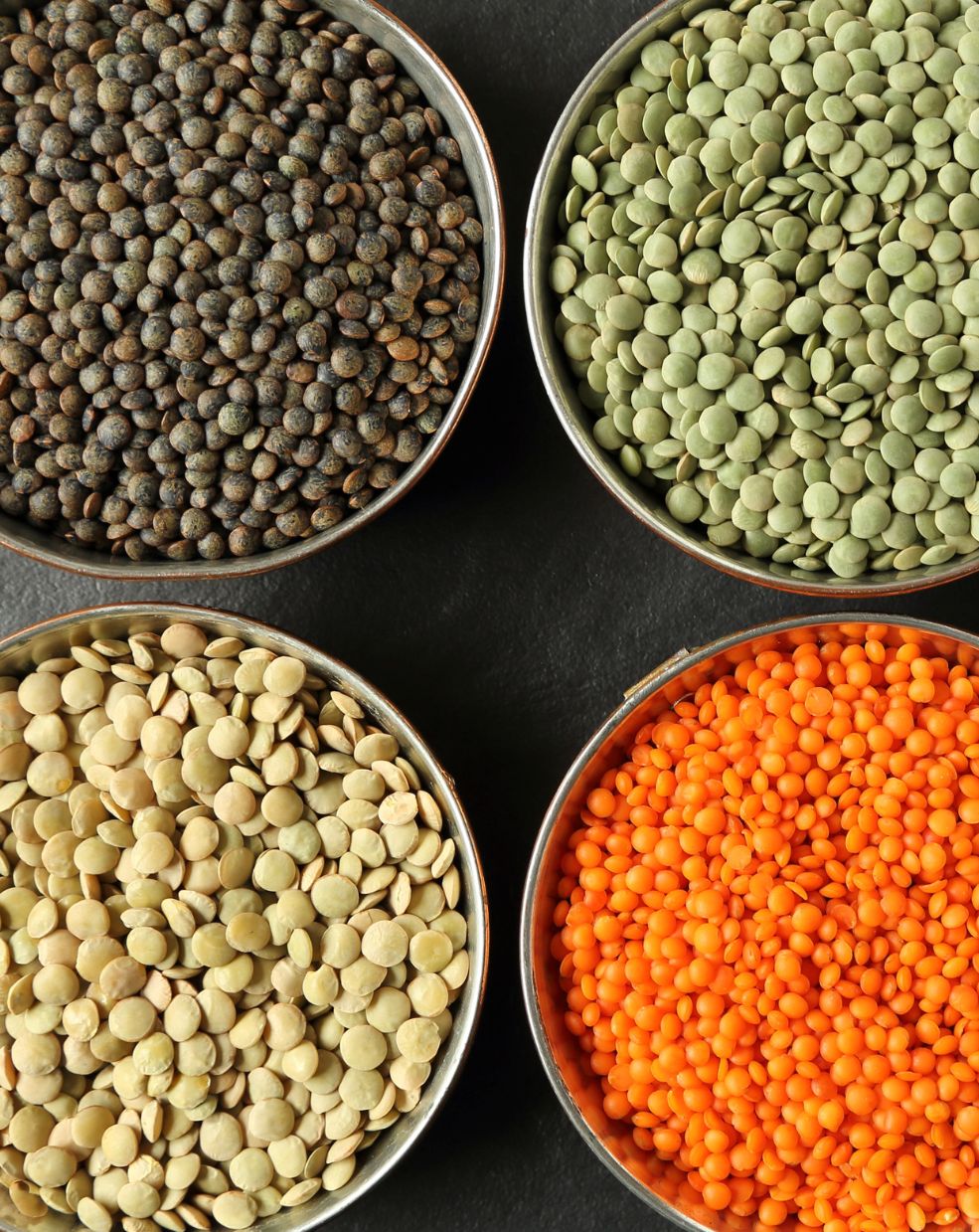Lentils are small, lens-shaped legumes that have been a staple in diets around the world for thousands of years. From soups and stews to salads and curries, lentils are incredibly versatile and packed with nutrients. But their health and environmental benefits extend far beyond the kitchen—they’re also a powerful ally in promoting both human health and environmental sustainability. In this blog post, we’ll explore why lentils are a superfood worth incorporating into your diet and how they contribute to a healthier planet.
Nutritional Benefits of Lentils

Lentils are a nutritional powerhouse. They are rich in protein, fiber, vitamins, and minerals, making them an excellent choice for a balanced diet.
- High in Protein: Lentils are an excellent source of plant-based protein, making them a great meat alternative for vegetarians and vegans. One cup of cooked lentils provides about 18 grams of protein, which is essential for muscle repair, immune function, and overall body maintenance (Kavle et al., 2023).
- Rich in Fiber: Lentils are loaded with dietary fiber, which aids in digestion and helps maintain a healthy gut. Fiber also helps regulate blood sugar levels, making lentils a good option for people with diabetes. A single cup of lentils contains around 16 grams of fiber, fulfilling over half of your daily recommended intake (Mayo Clinic).
- Packed with Essential Nutrients: Lentils are a good source of essential vitamins and minerals such as iron, folate, magnesium, and potassium. Folate, for instance, is crucial for DNA synthesis and repair, and is especially important for pregnant women (USDA Food Data Central).
- Low in Fat and Calories: Lentils are low in fat and calories, yet very filling, making them an ideal food for weight management. Their high protein and fiber content helps keep you feeling full longer, reducing the likelihood of overeating (Kavle et al., 2023).
How Lentils Promote Health and Wellness
Incorporating lentils into your diet can offer numerous health benefits. Here’s how they can improve your well-being:
Heart Health
The high fiber, folate, and magnesium content in lentils contribute to heart health. Fiber helps lower cholesterol levels, while magnesium improves blood flow, oxygen, and nutrients throughout the body. Regular consumption of lentils has been associated with a reduced risk of cardiovascular diseases (Harvard T.H. Chan School of Public Health).
Blood Sugar Control
Lentils have a low glycemic index (GI), which means they cause a slower rise in blood sugar levels. This makes them a great food choice for people managing diabetes. The fiber in lentils also slows down the absorption of sugar, further stabilizing blood sugar levels (American Diabetes Association).
Digestive Health
The high fiber content in lentils promotes regularity and prevents constipation. Additionally, the prebiotic fiber in lentils nourishes the beneficial bacteria in your gut, contributing to a healthy microbiome (Kavle et al., 2023).
Weight Management
Due to their protein and fiber content, lentils can help with weight loss by promoting satiety and reducing overall calorie intake. They are also nutrient-dense, providing essential nutrients without excessive calories (Mayo Clinic).
Environmental Benefits of Eating More Lentils
Lentils are not only good for your health but also for the planet. They are one of the most sustainable protein sources available.
- Low Water Footprint: Lentils require significantly less water to grow compared to other protein sources like meat. On average, it takes about 1,250 liters of water to produce 1 kilogram of lentils, while the same amount of beef requires over 15,000 liters. By choosing lentils over meat, you can greatly reduce your water footprint (Water Footprint Network).
- Nitrogen Fixation: Lentils, like other legumes, have the unique ability to fix nitrogen from the atmosphere into the soil. This natural process enriches the soil with essential nutrients, reducing the need for chemical fertilizers and improving soil health (FAO).
- Low Greenhouse Gas Emissions: Lentil production generates far fewer greenhouse gas emissions compared to meat production. Lentils emit around 0.9 kg of CO2-equivalent per kilogram, while beef emits about 27 kg. By opting for lentils, you can lower your carbon footprint and contribute to climate change mitigation (Earth.org).
- Supports Biodiversity: Lentil farming often supports crop rotation, which can improve soil health and reduce the need for pesticides. This practice promotes biodiversity and helps maintain a healthier ecosystem (FAO).
Delicious Recipes to Help You Eat More Lentils
Integrating lentils into your meals is easy, thanks to their versatility. Here are some simple ideas and recipes:
- Lentil Soup: A classic and comforting dish, lentil soup can be spiced up with vegetables, herbs, and spices for a nutritious meal.
- Salads: Crunchy Kale with Lentils and a creamy tahini sauce, roasted curry vegetables, and a tangy green curry dressing. Toss cooked lentils into any salad for a protein boost.
- Curries: Lentils are a staple in many Indian dishes, particularly in curries and dals. Pair them with rice for a complete meal.
- Spiced Lentil Burgers: Spiced Lentil Burgers with Tahini Slaw are made with pantry-staples and ready in 30 minutes. Vegan, gluten free, freezer-friendly.
- Lentil Stews: This One-Pot Vegan Lentil Stew is loaded with vegetables, spices, and fresh herbs, it is the ultimate one-pot-wonder.
To Sum It Up
Lentils are a true superfood, offering numerous health benefits while being kind to the planet. By incorporating lentils into your diet, you’re not only making a choice that benefits your well-being but also contributing to a more sustainable food system. Whether you’re looking to improve your diet, manage your weight, or reduce your environmental impact, lentils are a simple yet powerful way to achieve your goals.

